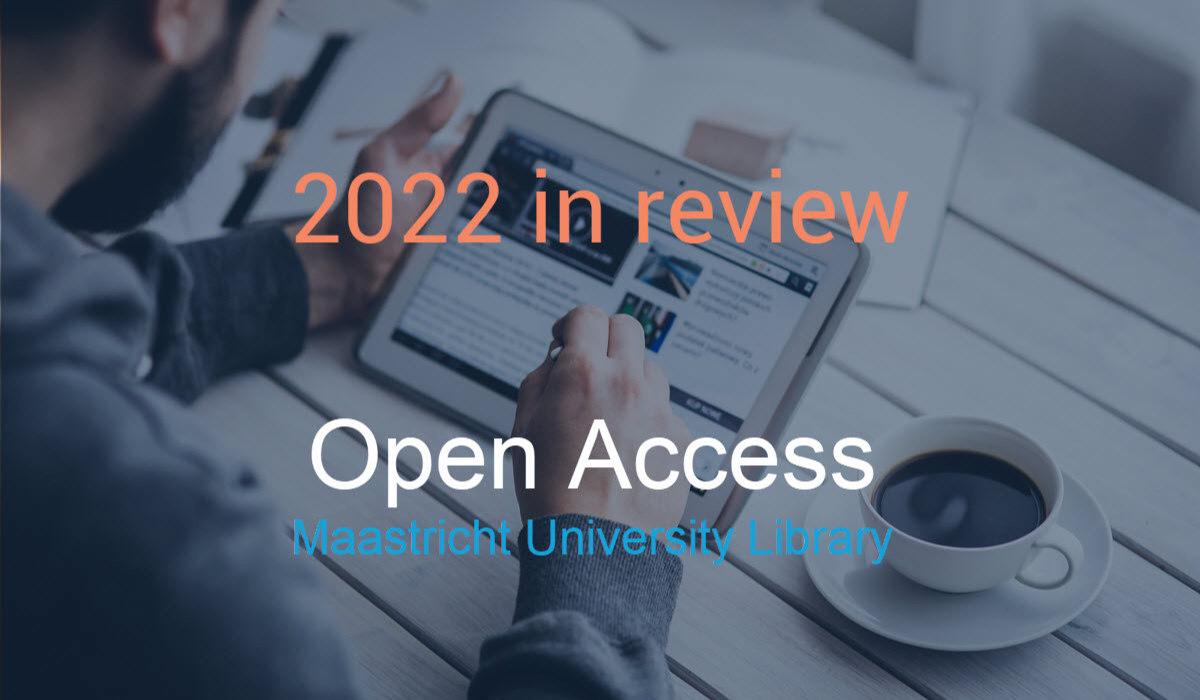Key Takeaways
- More than 84% of 2022 UM research output is available in Open Access, an increase of 7% points and a rise of 9% from 2021.
- We will focus on including diverse output forms like books, book chapters, and conference papers in Open Access monitoring.
- The aim to achieve 100% Open Access remains, but the focus is on Open Access as part of the university’s Open Science goals.
In last week’s post, I addressed the renewed focus on Full and Diamond Open Access publishing.
This focus is not a replacement but a complement to the current Hybrid Open Access and Green Open Access strategy. The current approach has ensured that we have grown towards 90% Open Access in the Netherlands in recent years.
Although 100% Open Access is still ongoing since the introduction of our Open Science ambitions, Open Access is also a means in our Open Science transition. The expansion of focus fits entirely into the Open Science strategy.
National OA monitor
In July, we again delivered the counts of our OA publications to the national OA monitoring team. They process the counts into a national summary that goes to UNL.
As soon as the national data are known, we will reveal them on our joint Open Access website, openaccess.nl.
Open Access at Maastricht University in 2022: 84%
Our July counts showed that 84% of the 2022 UM research output was available for Open Access. In 2021 the percentage was still 77%, so another 7% growth. It would be great if, this year, together, we could ensure a rate starting with a 9.
Some comments on the percentages and growth in 2023:
- The national monitor only includes academic (peer-reviewed) journal articles. As of this year, books, editorials and conference publications are also included in the monitor, so the percentages and trends will show a kink.
- From this year onwards, the processing of the counts takes place centrally with source data from university CRISs (Pure) due to be enriched centrally. Centralisation may also affect the current local counts.
- In our case, the share of Green OA is still increasing annually due to new participants in the “You share, We take care” (Taverne) service. The growth of Green Open Access may offset a drop in counts.
Research Information Portal
Open Access publications can be found via publishers, indexes and search engines. But to see the results of 2022, you can best visit our Research Information Portal, where you have a complete overview of Maastricht University’s research output. You can filter on year, publication type and more.
Tip for Maastricht University researchers
Are you a UM researcher and still need to participate in Taverne (or you don’t remember)?
Now is the best time to participate. It takes less than 1 minute. Just click the button. This action takes you to UMployee (UM Intranet), where you can opt for participation. That’s all.
The library will follow up and continue to provide Green Open Access to your non-OA publications.
Full OA and Diamond OA, diversity and inclusivity
As I mentioned last week, we will collectively focus on the complete Open Access spectrum.
That means focusing on other publishing models, such as Full OA and Diamond OA, and other output forms. Books, book chapters and conference papers are the first we will include in the monitor.
As these often do not yet have unique identifiers (DOIs), identifying and registering them is labour-intensive (manual work). But many Open Science friendly publishers, such as Maastricht University Press, ensure that articles, books, chapters in edited volumes, and conference papers have unique DOIs, making them findable, accessible and indexed.
Tip for academics
If you publish a book, chapter, or article in a conference proceeding, ask about the possibility of providing the digital version of the publication with a DOI.
Publications with persistent identifiers, like a DOI and an ORCID, are better findable and can be better identified and indexed.
Identifiers also help with evaluation and impact.
More information
- Open Science Portal
- Open Access Portal
- Maastricht University Press
- Research Information Portal
- Open Access Publishing: Towards a More Inclusive and Diverse Publishing Landscape
If you have questions or remarks about this post or the services mentioned, please get in touch with one of our Open Access publishing specialists, Ron Aardening or Michel Saive. Or submit a comment at the bottom of this post.


0 Comments